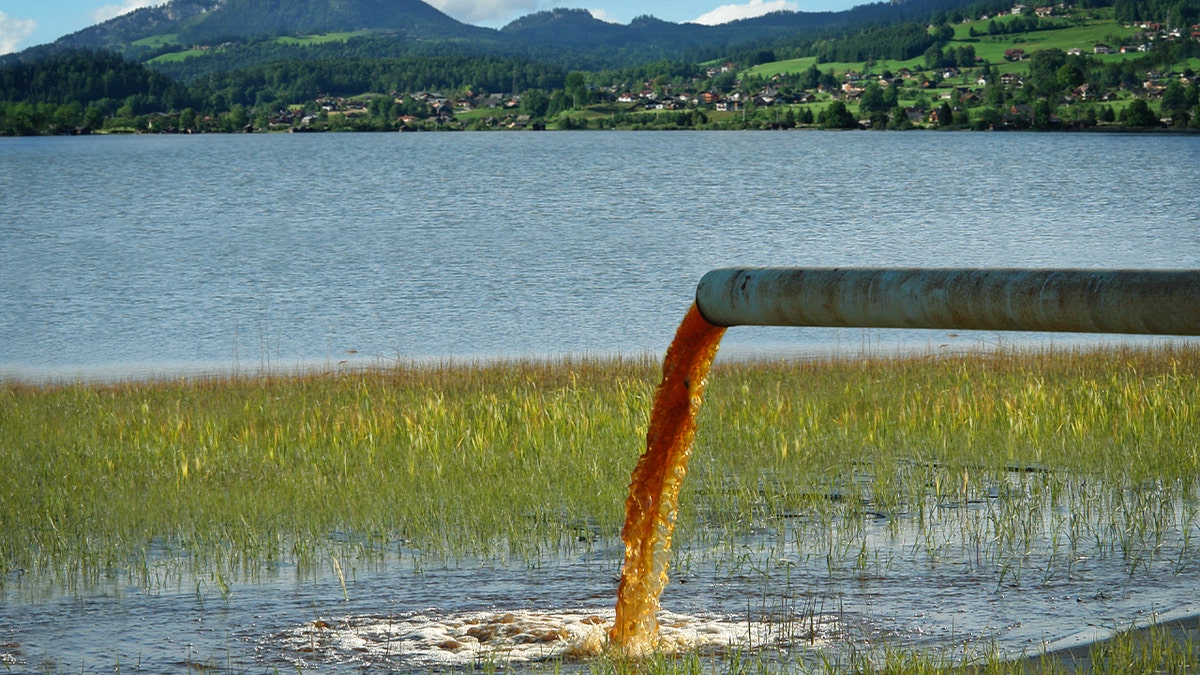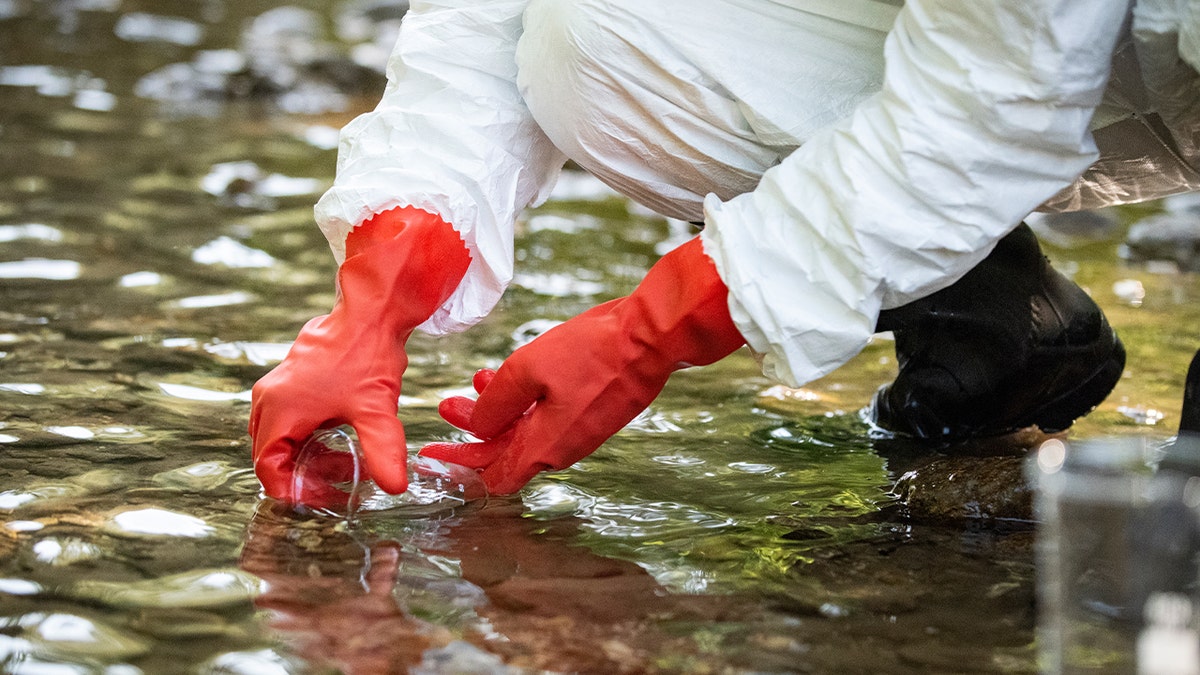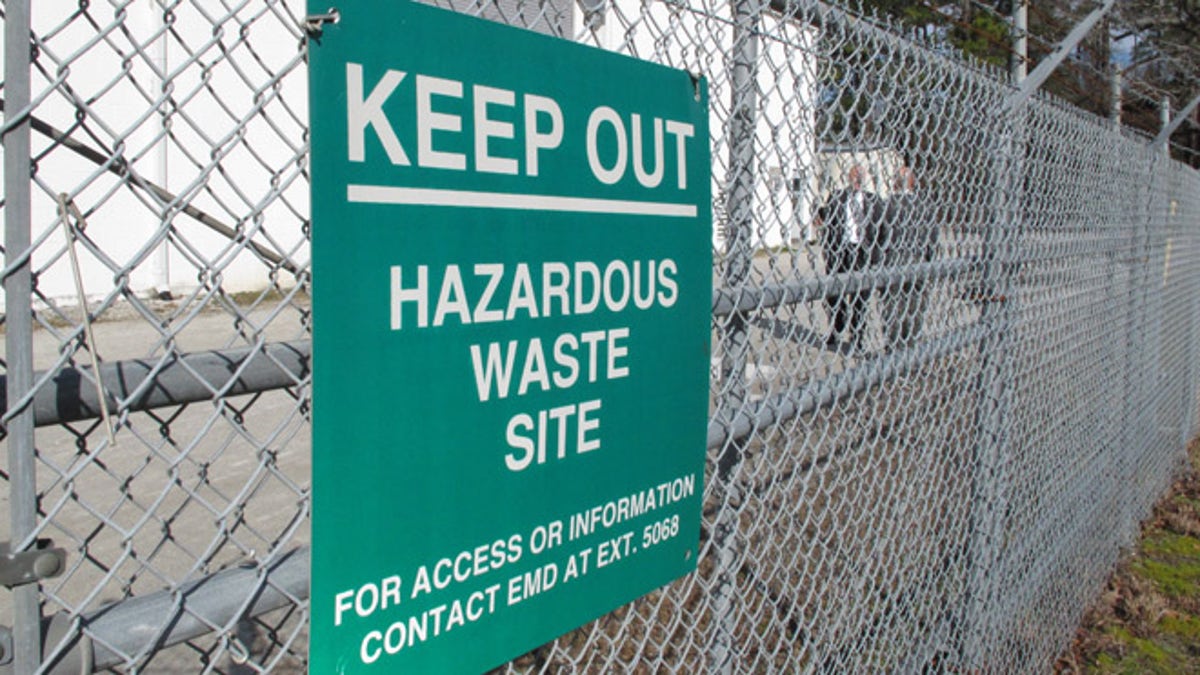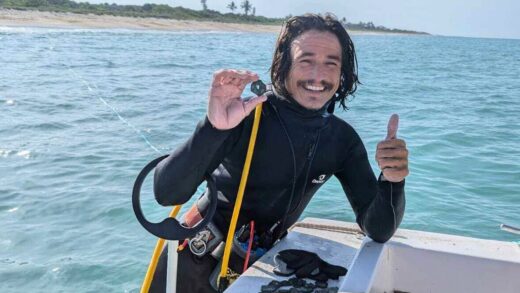NEWYou can now listen to Fox News articles!
Decades after Marines and families at North Carolina’s Camp Lejeune bathed and drank in poisoned water, the law meant to bring them justice has stalled. The 2022 Camp Lejeune Justice Act — intended to finally allow victims their day in court — has instead become mired in legal backlogs and procedural fights.
As medical bills mount from lifetimes of chronic illness and loved ones pass away, families say Washington’s delays have turned a promise of justice into yet another bureaucratic waiting game.
They’re now calling on Congress to pass the Ensuring Justice for Camp Lejeune Victims Act, which would guarantee victims the right to trial and ensure their claims are heard.
BANNED CHEMICALS FOUND IN AMERICAN SHAMPOO, SUNSCREEN AND TAMPONS ACROSS MAJOR BRANDS

The entrance sign to U.S. Marine Corps Base Camp Lejeune in North Carolina, where contaminated drinking water sickened service members and families for decades. (U.S. Marine Corps/Handout via Reuters)
A lifetime of illness
Donna Harris was born and spent her early childhood on the North Carolina Marine Corps base. She believes she’s been paying for it ever since.
After years of drinking and bathing in contaminated water, Harris has battled asthma, immune thrombocytopenic purpura (ITP) — a rare blood disorder — lost her left kidney, and faced both breast and uterine cancer.
“I’m just wondering where the next cancer is going to come,” she said. “That’s how I live every day.”
Her mother, who lived on base in the 1960s, suffered four miscarriages. Her sister later died from kidney disease.
A toxic legacy
From the 1950s through the late 1980s, drinking water at Marine Corps Base Camp Lejeune was contaminated with toxic chemicals — including trichloroethylene (TCE), perchloroethylene (PCE), benzene, and vinyl chloride — leaked from fuel tanks and improper waste disposal.
Estimates from the Agency for Toxic Substances and Disease Registry (ATSDR) suggest that up to one million Marines, civilian workers and their families were exposed over decades.

Toxic runoff and industrial waste contributed to Camp Lejeune’s decades-long water contamination, later linked to cancer and chronic illness among Marines and families. (Narvikk/Getty Images )
Although contamination was first detected in the early 1980s, the most polluted wells weren’t shut down until 1985. Veterans and families spent years reporting high rates of rare cancers, birth defects, and chronic diseases only to face a long fight for recognition and care. Federal investigations later found that military and health officials were slow to act, even after learning the water was unsafe.
When the contamination first became public in the mid-1980s, Marine officials blamed a nearby dry-cleaning shop for leaking chemicals into the groundwater. But federal investigations later found multiple sources, including leaking fuel tanks, chemical dumps and industrial solvent disposal across the base.
‘A betrayal from the Corps’
Bob Quinter, a fighter pilot who survived being shot down five times during the Vietnam War, never imagined that the greatest danger he faced would come from his own base.
After being stationed at Camp Lejeune for eight years in the 1970s and ’80s, Quinter was diagnosed with recurring kidney cancer in 2011.
“No one had any idea of the toxic exposure,” he said. Still, strange smells loomed in the air on base from time to time.
Quinter recalled a friend who served as the base adjutant warning him in the early ’80s that “a major issue on base would soon come to light — and its reach would prove devastating.”
“It’s sort of like a betrayal from the Corps,” Quinter said.

30 years of water contamination at Camp Lejeune came to light in 1985. (Vitranc/Getty Images )
HIGHER CANCER RATES LINKED TO WWII RADIOACTIVE WASTE IN MIDWESTERN CREEK
Both of his daughters have suffered multiple miscarriages, and at least half a dozen fellow Marines from his time on base later developed serious illnesses they believe are tied to their exposure.
“Marines, by their nature, tend to be positive and not worry about the bad parts of their service,” Quinter added. “So it’s something that comes up sort of off the cuff, and then we move on to some old sea story that everybody would rather hear.”
Justice delayed again
Originally, injury claims related to Camp Lejeune had a filing deadline of 1997 — long before many victims even knew about the contamination.
When Congress passed the Camp Lejeune Justice Act in 2022, victims felt a wave of relief. Harris learned that her breast cancer qualified as a covered condition and filed a claim to help pay for radiation and surgery.
“I reached out and was approved for any out-of-pocket medical costs,” she said. She meticulously submitted every receipt and record.
“That was in April of 2022,” Harris said. “And I’ve not seen a dime. They care until they don’t.”
Her 93-year-old father, who will soon attend the Marine Corps Ball in his dress blues, appears to have escaped the illnesses that ravaged others in the family.
“I asked him, I said, ‘Daddy, why didn’t you get sick?’ He said, ‘I never drank the water.’”
It’s believed that the water on site affected up to one million people before authorities cut off the poisoned supply.
Now, victims and families are urging Congress to ensure that the Camp Lejeune law actually opens the door to jury trials or fair mediation, rather than leaving claims stalled in administrative limbo. The most important goal, they say, is simply to get into court — to have their cases move forward rather than remain buried in procedural bottlenecks.

Advocates say Marines tend to brush off the “bad parts of service.” “I’ve met Marines who didn’t think this was real.” (U.S. Marine Corps photo by Cpl. Loriann Dauscher)
They’re also asking lawmakers to expand the capacity of the court system so that more cases can be heard and resolved efficiently. Beyond compensation, they want acknowledgment: public recognition that the government knew what was happening and failed to act, and an honest accounting of how that negligence destroyed lives.
By law, Camp Lejeune claims are first handled by the Navy’s Office of the Judge Advocate General (JAG) which must review each case before victims are allowed to sue in federal court. The Navy JAG office and the Department of Justice could not be reached for comment.
There is growing bipartisan support behind new legislation to fix the system. More than 60 members of the House of Representatives and over 10 senators now back the Ensuring Justice for Camp Lejeune Victims Act, introduced by North Carolina Republicans Sen. Thom Tillis, R-N.C., and Rep. Greg Murphy — but the bill has not yet been scheduled for a vote.
Grief turned into advocacy
Michelle James, whose husband died in 2019 after years of illness she believes was caused by Camp Lejeune’s water, says the contamination robbed her family twice — first of his health, then of justice.
“He developed multiple sclerosis, then bladder and colorectal cancer,” she said. “Later, I learned that the chemicals can actually affect personality. It explained a lot about how he changed before he got sick.”
After his death, James launched a support group — Lejeune Empowered Advocacy for Widows (LEAWs) — to help others facing similar loss. When Congress passed the 2022 law, she remembers feeling hopeful.
“We were really happy when the bill got passed,” she said. “We thought finally we were going to get the justice our loved ones deserved.”
That hope, she said, has since been replaced by frustration. “We thought we’d be able to have jury trials and our voices would be heard,” James said. “But we’ve come across so many hurdles — proving causation, no limits on attorney fees, and only one court handling hundreds of thousands of claims.”

Camp Lejeune, a North Carolina Marine Corps base, is the site of one of the worst drinking water contaminations in U.S. history. (AP)
The new bill would cap attorney fees at 20% for settlements and 25% for trials and allow any federal court in North Carolina and South Carolina to hear such cases. “It’s about putting the money back into the victims’ pockets — not lining attorneys’ pockets,” she said.
But the most important change, she said, is restoring the right to a jury trial. “You can write it on paper, but it’s not the same as hearing from the people who lived it — seeing their faces, understanding their loss.”
Her support group has become a lifeline for families struggling under the weight of illness, lost income, and grief. “Some women have lost their homes. Others are too sick to work. It’s heartbreaking,” she said. “But we lean on each other.”
CLICK HERE TO DOWNLOAD THE FOX NEWS APP
James said part of the challenge is disbelief — even among those who served. “I’ve met Marines who didn’t think this was real,” she said. “They thought the lawsuits and ads were scams, that lawyers were just trying to make money. But it’s not a scam — it’s our lives. People are sick, people have died.”
And she wants Americans to pay attention. “You might know someone who served at Camp Lejeune,” she said. “We need all the support we can get — even one phone call or email to a representative. We always say, ‘Thank you for your service.’ Well, this is a way to show it.”


